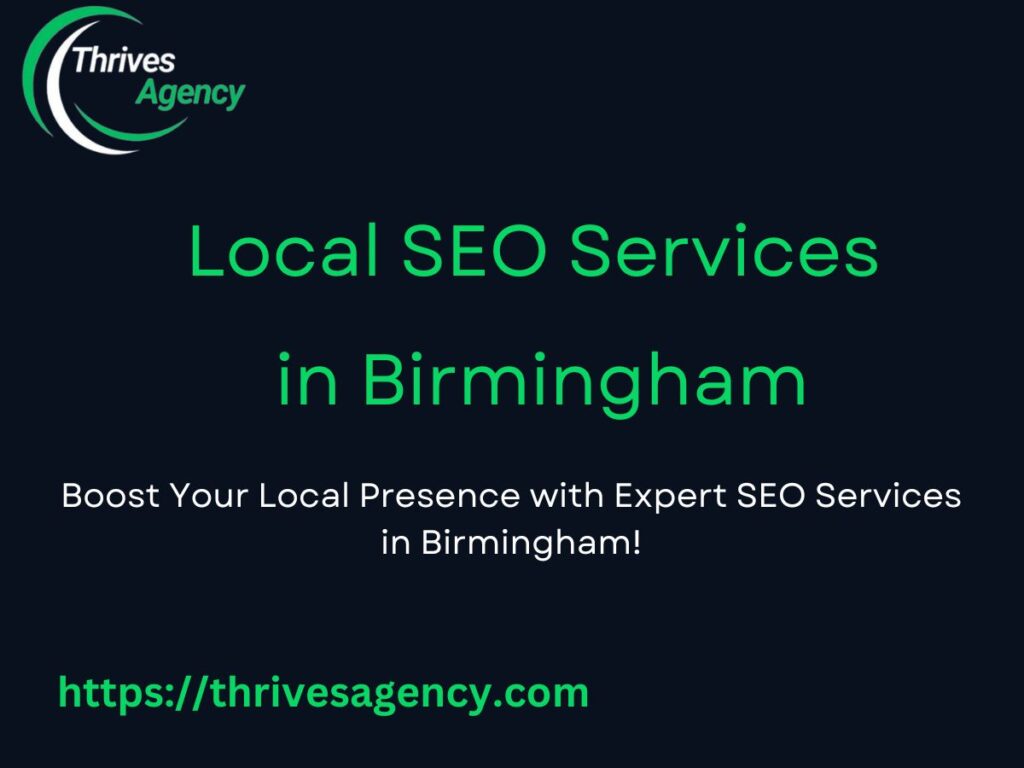Discover how local startups can leverage affordable and professional local SEO strategies to increase visibility, attract customers, and compete with established businesses in their area.
In today’s digital landscape, local startups face the challenge of standing out in a crowded market. One of the most effective and affordable ways to boost visibility and attract customers is through local Search Engine Optimization (SEO). This article will explore how local startups can leverage trusted and expert local SEO techniques to compete with established businesses and become the premier choice for local customers.
The Importance of Local SEO for Startups
Local SEO is a critical component of any digital marketing strategy for startups. It helps businesses appear in local search results, making it easier for nearby customers to find them. Here’s why local SEO is essential:
Increased Visibility: Local SEO helps your business appear in local search results, increasing your chances of being found by potential customers.
Cost-Effective Marketing: As an affordable digital marketing strategy, local SEO provides an excellent return on investment for startups with limited budgets.
Targeted Traffic: By focusing on local keywords and optimizing for local searches, you attract more relevant, location-based traffic to your website.
Competitive Edge: Effective local SEO can help level the playing field, allowing startups to compete with more established businesses in their area.
Key Local SEO Strategies for Startups
Optimize Your Google My Business Listing
As a trusted and reliable source of local information, Google My Business (GMB) is crucial for local SEO success. To optimize your GMB listing:
- Claim and verify your business listing
- Provide accurate and complete information
- Add high-quality photos and videos
- Encourage and respond to customer reviews
- Use Google Posts to share updates and offers
Conduct Keyword Research
Identify relevant local keywords that potential customers might use to find your products or services. Use tools like Google Keyword Planner or SEMrush to find:
- Location-based keywords (e.g., “digital marketing agency in [city name]”)
- Long-tail keywords (e.g., “affordable SEO services for small businesses”)
- Industry-specific terms relevant to your niche
Optimize Your Website for Local Search
- Ensure your website is optimized for local search by:
- Including location-based keywords in your content, meta titles, and meta descriptions
- Creating location-specific pages for each area you serve
- Adding your business name, address, and phone number (NAP) to every page
- Optimizing your website for mobile devices
- Improving your site’s loading speed
Build Local Citations
Citations are mentions of your business name, address, and phone number on other websites. Build citations on:
- Local business directories
- Industry-specific directories
- Chamber of Commerce websites
- Local news sites and blogs
Ensure your NAP information is consistent across all citations to boost your local SEO efforts.
Develop a Local Link Building Strategy
Earn high-quality, local backlinks to improve your website’s authority and local search rankings. Some strategies include:
- Partnering with local businesses for cross-promotion
- Sponsoring local events or charities
- Creating valuable, shareable content about local topics
- Reaching out to local bloggers and influencers for collaborations
Encourage and Manage Online Reviews
Online reviews play a significant role in local SEO and customer decision-making. To leverage reviews:
- Encourage satisfied customers to leave reviews on your GMB listing and other platforms
- Respond promptly and professionally to all reviews, both positive and negative
- Address any issues raised in negative reviews and work to resolve them
- Showcase positive reviews on your website and social media channels
Leverage Social Media for Local Engagement
While social media signals aren’t a direct ranking factor, they can indirectly impact your local SEO efforts by:
- Increasing brand awareness and visibility
- Driving traffic to your website
- Providing opportunities for local engagement and community building
- Offering another platform for customer reviews and testimonials
Create Local Content
- Develop content that resonates with your local audience and demonstrates your expertise:
- Write blog posts about local events or news related to your industry
- Create location-specific landing pages for each area you serve
- Develop case studies featuring local clients
- Produce videos showcasing your involvement in the local community
Optimize for Voice Search
With the increasing popularity of voice assistants, optimizing for voice search is crucial:
- Focus on conversational, long-tail keywords
- Create FAQ pages that address common local queries
- Ensure your website is mobile-friendly and loads quickly
- Optimize for featured snippets to increase your chances of being the voice search result
Monitor and Analyze Your Local SEO Performance
Regularly track your local SEO performance to identify areas for improvement:
- Use Google Analytics to monitor local organic traffic
- Track your local keyword rankings
- Monitor your GMB insights for valuable data on how customers find and interact with your listing
- Use tools like BrightLocal or Moz Local to track your local SEO progress
Conclusion
Implementing effective local SEO strategies is crucial for startups looking to boost their visibility and compete in their local markets. By focusing on optimizing your Google My Business listing, conducting thorough keyword research, and creating valuable local content, you can establish your startup as a top-rated and trustworthy option for local customers.
Remember that local SEO is an ongoing process that requires consistent effort and adaptation to changing algorithms and consumer behaviors. By staying committed to your local SEO strategy and continuously refining your approach, your startup can achieve long-term success and become the premier choice for customers in your area.
FAQs
Q: How long does it take to see results from local SEO efforts?
A: While some improvements can be seen within a few weeks, significant results typically take 3-6 months, depending on your market’s competitiveness and the consistency of your efforts.
Q: Is it necessary to hire a professional digital marketing agency for local SEO?
A: While it’s possible to implement many local SEO strategies yourself, hiring an experienced and affordable digital marketing agency can save time and provide expert insights to accelerate your results.
Q: How often should I update my Google My Business listing?
A: It’s recommended to review and update your GMB listing at least monthly, ensuring all information is accurate and adding new photos or posts regularly.
Q: Can local SEO help my startup compete with larger, established businesses?
A: Yes, effective local SEO can level the playing field, allowing startups to compete with larger businesses by improving visibility in local search results and attracting nearby customers.




